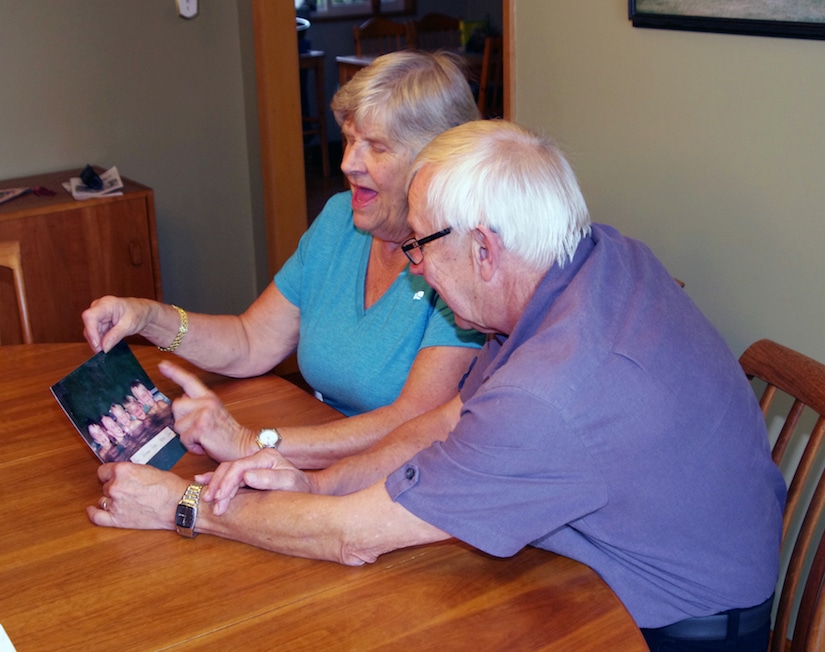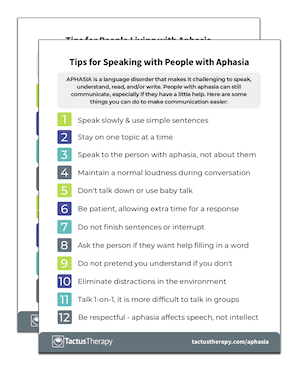Talk the Talk: 5 Things You Need to Know when Speaking with a Person with Aphasia
6 min read
Imagine that you can construct fluent sentences in your mind, but only utter “Not good” when asked a question.
Or you remember every moment of your wedding day 48 years ago, but when asked the date, you have to write the numbers 2 and 7, point to them, and say, “This one . . . December.”
Or you recall many treasured stories about each of your grandchildren, but when you look at a photo of all five smiling back at you, you struggle to say their names.
This is reality for stroke survivor Jennifer Swaren, and for many other people living with aphasia.
Living With Aphasia
Aphasia is a disorder that results from damage to the parts of the brain that control language. Often caused by a stroke, aphasia is an impaired ability to produce or comprehend language — or both. It ranges from difficulty finding words to being completely unable to speak, understand, read, and/or write.
Stroke can also impair a person’s ability to move, see, remember, and reason.
It’s been 13 months since Jennifer suffered two strokes following hip surgery. It’s been a difficult journey, with lots of twists and turns, as Jennifer relearns fundamental skills she first mastered as a child.
Still, she and her husband, Ed, feel lucky. Jennifer’s stroke has affected only a small area of her brain. It hasn’t impacted her physical or cognitive abilities.
“Jennifer’s challenges relate to language, which is good, but still very isolating,” Ed explains. “She misses her independence and her social life. She wants to be able to call up the hair salon to make an appointment, chat on the phone with her many friends, and drive herself wherever she wants to go.”

Download a Handout With Tips for Aphasia
Get your free PDF with tips for speaking to someone with aphasia as well as tips for living with aphasia. A perfect handout for families.

In addition to receiving your free download, you will also be added to our mailing list. You can unsubscribe at any time. Please make sure you read our Privacy Policy and Terms & Conditions.
What You Need to Know
Jennifer’s independence relies not only on her own ability to regain her speech, but also on the thoughts and actions of others around her.
She’s not alone. About 2 million Americans and 100,000 Canadians have aphasia, and it’s estimated that another 80,000 people across North America acquire it each year.
If you meet someone with aphasia in your social circle or community, you can help. Here are five things you need to know:
Most importantly, remember that when you’ve met one person with aphasia, you’ve met one person with aphasia.
Although people with aphasia sometimes share certain characteristics, they’re highly individual in their needs and preferences. Just like every other human being. If you aren’t sure, just ask.
